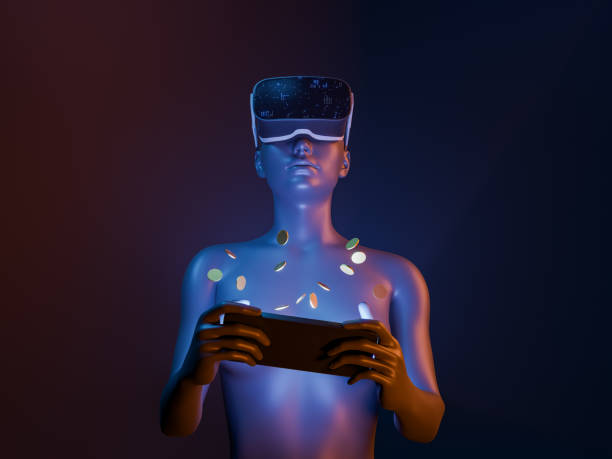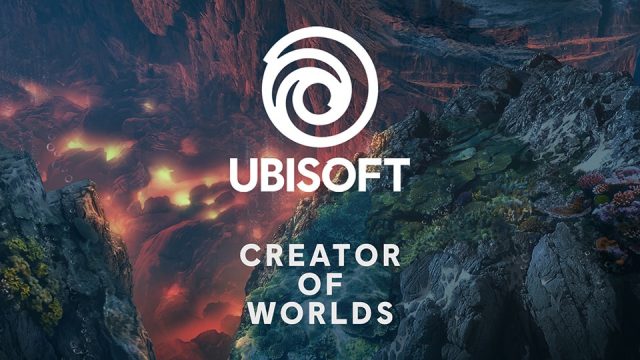In recent months, game publishers have been offering nonfungible tokens (NFTs) and that has made the NFT market explode. However, skeptical gamers believe that there is a moneymaking scheme and have decided to fight back. One gamer, Matt Kee, complained about a game studio’s push into the NFT world:
“I just hate that they keep finding ways to nickel-and-dime us in whatever way they can.”
Another gamer, Christian Lantz, has played S.T.A.L.K.E.R. for years. S.T.A.L.K.E.R. is a first-person shooter game that is set in a post-apocalyptic Ukraine that turned into a cult hit for its massive role-playing. When the 18-year-old high school heard that a sequel was getting released later this year, he was sure that he wanted it.
But, that was until when GSC Game World, the company behind that game, said in December 2021 that it would integrate nonfungible tokens into the new S.T.A.L.K.E.R. GSC said that the new game would allow gamers to buy and sell NFTs of items such as clothing for their in-game characters, tools, and items.
Fans Not Amused By NFTs In Games
The Ukrainian game developer said that the incorporation of NFTs is a ‘transformative step’ toward the virtual world called the metaverse. Mr. Lantz was not happy about that. He joined tens of thousands of fans on Reddit and Twitter who complained about the inclusion of NFTs in S.T.A.L.K.E.R.’s sequel.
All these fans said that the game developer was just aiming to squeeze more money out of the players. That backlash was quite intensive which pushed GSC to rapidly reverse itself and abandoned its NFT plan in general. Mr. Lantz commented:
“The studio was abusing its popularity. It’s so obviously being done for profit instead of just creating a beautiful game.”
For over a year, the crypto-mania seems to have been at a fever pitch. Cryptos like Ethereum and Bitcoin has exploded in value. The crypto-based assets like NFTs have also taken off. The Twitter founder, Jack Dorsey, renamed one of his firms Block to honor the blockchain, the distributed ledger system that underpins digital currencies.
Related: Why Blockchain NFT Games Are Great for the Cryptoverse
Notably, Melania Trump has also auctioned off her own NFTs in the wake of the NFT mania. The proponents hope that blockchain is set to revolutionize industries, ranging from social media to finance to art.
However, the critics believe that the crypto craze has gone too far quickly. Skeptics believe that cryptos and many other related assets like NFTs are digital Ponzi schemes, with prices locally inflated beyond their real value. Some wonder whether the blockchain and cryptos have any long-term utility.
The gaming community is quite unhappy and clashes over cryptos have erupted between the players and huge game studios like Square Enix, Ubisoft, and Zynga. In most of these encounters, the gamers seem to be winning, for now. Another gamer, Mutahar Anas, who is also a YouTuber with over three million subscribers, stated:
“People are being sold buzzwords. Those pushing NFTs in games are trying to sell you snake oil.”
At least six game studios have confirmed their plans to include NFTs in their games in recent months. These digital assets are validated by blockchain technology and they provide proof of authenticity and ownership. They give gamers unique digital items, as explained by the game makers. The digital items can enrich the players who decide to sell these NFTs in any online marketplace.
According to game publishers, NFTs might be transferred among games in the future, which means that items from one game franchise may affect gameplay in another interconnected game. Nonetheless, players believe that this is just a blatant cash grab scheme created by the game developers and publishers.
Matt Kee, 22, a gamer, went on Twitter in anger after Square Enix said that it wanted to invest in NFTs:
“I just hate that they keep finding ways to nickel-and-dime us in whatever way they can. I don’t see anywhere mentioning how that benefits the gamer, how that improves gameplay. It’s always about, ‘How can I make money off this?’”
Lots Of Micro Transactions Dominate Video Games
Most of the resentment comes from the encroachment of microtransactions in video games. Over the years, the game makers have found many ways that they can benefit from users by making them pay for upgrades or when they want to enhance their level of play within these games.
Even after the players pay at least $60 for a game upfront, they are then asked to pay more for digital items like weapons and clothing for the characters within the game. In one famous incident in 2006, “The Elder Scrolls IV: Oblivion” charged users up to $2.50 for one set of armor for their character’s horse.
A renowned game streamer and editor at Fanbyte, Merritt K, believes that the gamers’ antagonism toward the game developers has accumulated over the last ten years partially due to the increasing number of microtransactions. Thus, when the game developers introduced NFTs as an extra element to purchase and sell, she explained:
“Players are primed to call this stuff out. We’ve been here before.”
In that context, Eric Hild, 31, a beer brewer who lives in Decorah, Iowa, said:
“‘It was only a few bucks, but I remember thinking, ‘Why won’t they just give us the horse armor? Why make us pay for it?’”
Game Companies Criticized By Gamers Over NFT Integration
This new model has caused gamer outrage and outbursts that rattled the game companies. The developer of the Sonic the Hedgehog game, Sega Sammy, expressed reservations on its crypto and NFT plans in December after many “negative reactions” from users.
Ubisoft makes titles like Assassin’s Creed. The company confessed that it had not known how unhappy its customers would be after introducing an NFT program in December. More than 90% of the viewers disliked the company’s video about the move. Nicolas Pouard, Ubisoft vice president, highlighted:
“Maybe we under-evaluated how strong the backlash could have been.”
Game firms insist that their NFT plans are not motivated by profits. Instead, they believe that NFTs give fans something exciting and fun to collect and a new method for them to make profits by selling these in-game assets. One executive at Zynga, Matt Wolf, who is leading research into blockchain games stated:
“It is all about community. We believe in giving people the opportunity to play to earn.”
The push to embrace cryptos in blockchain games has gathered momentum in the past few years. Some of the developers started building games on the blockchain, which made it quite easy for the players to collect digital assets and then later prove that they own these assets.
One such game is CryptoKitties, which was a hit in 2017 when the gamers collected digital cats and some of these digital items sold for over $100,000. Amid the pandemic, blockchain-based games like Axie Infinity, where the players make a lot of money by earning and selling NFTs, also became highly popular.
Related: People Are Earning Cryptos for Playing Axie Infinity Game
The bigger game studios now try to get in on the action. However, some of their plans remain vague. Ubisoft was the first notable game publisher to explore the crypto world announcing its Ubisoft Quartz initiative in December. The game publisher introduced three NFTs sets in the form of digital equipment like guns and helmets.
These NFTs were made available for free in the Ghost Recon Breakpoint shooter game for the players that reached a particular level in the game. The company mentioned that the gamers could keep or sell these items on third-party markets for fiat or crypto.
Today, 10,000 digital wallets have been linked to the Quartz platform, although Ubisoft minted only 3,000 NFTs in its first batch, as explained by Mr. Pouard. This growth shows that there might be more appetite for NFTs in the future.
In the end, Ubisoft will take a percentage of the sales of future NFTs. Pouard added:
“We’re moving from a business model focused on just a game to a business model focused on an ecosystem in which every player can be a stakeholder.”
Related: Ubisoft Developing Blockchain-Based Marketplace to Buy In-Game Items
Zynga is scheduled to be acquired by Take-Two. The company hired a games sector veteran, Mr. Wolf, to lead a crypto effort in November 2021. The primary aim was to develop new games on the blockchain, which would make it easy for the players to buy, own, and sell NFTs. Wolf highlighted how the effort would work and tackled the issue of whether the NFTs could be sent from one Zynga game to the next.
“We’re still developing all that.”
Other game firms have explored the world of NFTs, insisting on how cryptocurrencies can generate new wealth for users. Earlier this month, Yosuke Matsuda, Square Enix’s president, published in an open letter that developing blockchain games would enable the players to make more money. If it becomes successful, this concept would become “a major strategic theme” for the firm.
But, players became increasingly angry due to the many NFT announcements from different game studios. After players opposed Sega Sammy’s crypto plans, one top executive said:
“If it is perceived as simple moneymaking, I would like to make a decision not to proceed.”
Some Game Developers Oppose NFTs And Crypto
Some other game-developing companies have come out against crypto. For instance, the head of Microsoft’s Xbox, Phil Spencer, told Axios in November said that some of these games have focused on earning money via NFTs. These games seem ‘exploitative’ and Spencer said that he would avoid putting them in the Xbox store. Microsoft has not commented on this matter.
The owner of Steam online game store, Valve, also updated its rules last fall to ban all blockchain games that let cryptos or NFTs be exchanged.
Tim Sweeney, chief executive of Epic Games, Fortnite maker, said that his firm would stay away from NFTs in its games since the sector is dominated by “an intractable mix of scams.” However, Epic said that it will still allow developers to sell blockchain games within its online store.
Replied:
We aren’t touching NFTs as the whole field is currently tangled up with an intractable mix of scams, interesting decentralized tech foundations, and scams.
— Tim Sweeney (@TimSweeneyEpic) September 27, 2021
The fight-back by the gamers has affected more than the game developers. Discord is a messaging platform that is popular amongst gamers. The platform backtracked in November 2021 after users threatened to cancel paid subscriptions over a cryptocurrency initiative that the company wanted to implement. Discord’s chief executive, Jason Citron, had teased that particular project on Twitter, prompting the mutiny.
Mr. Citron mentioned in an interview:
“While I’m optimistic that there’s a lot of cool stuff going on in the blockchain space, there’s also a lot of problems.”
Mr. Kee, the S.T.A.L.K.E.R. gamer has said that he will continue fighting the game firms that try to invest in crypto. The S.T.A.L.K.E.R. developers’ decision to suspend NFTs made him hopeful that the other firms could be pushed through public opinion to abandon their plans to integrate NFTs with their blockchain games.
He concluded:
“It gives me a good feeling that everyone is vocal against this. Over the past 10 years, we’ve seen all sorts of these schemes come up, and we’re tired of it.”











